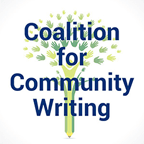Document Type
Article
Abstract
This article analyzes a group of Gambian-American college writers creating an alternative public to challenge the patronizing norms operating in prevailing “aid-to-Africa” rhetorics. These young rhetors evoked performative genres and hybrid discourses so that members of their local public (the African nationals, African American professionals, white educators, fellow students, Muslim elders, conservative Christian community leaders) might themselves embody more productive self-other relations as they considered together the issue that drew them together publicly: the often hidden and insidious ways that cultural gender norms limit young African women’s ability to thrive, whether in the U.S. or in the Gambia.
Recommended Citation
Long, Elenore, et al. “Gambian-American College Writers Flip the Script on Aid-to-Africa Discourse.” Community Literacy Journal, vol. 7, no. 1, 2012, pp. 53–75, doi:10.25148/clj.7.1.009380.

